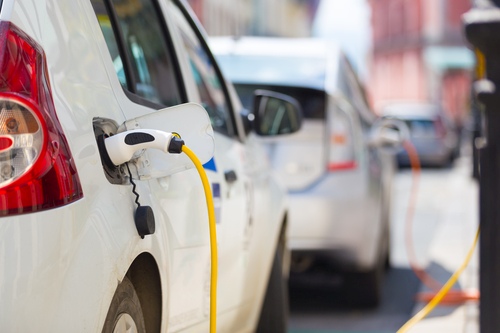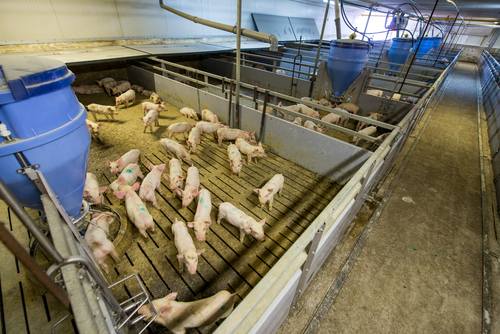Volkswagen invests 2.1 billion euros in China business with electric vehicles
The German car giant Volkswagen intends to invest around 2.1 billion euros in its China business with electric vehicles. The company describes this step as the next chapter for its business activities in China. The sum is divided into 1 billion euros to increase the shareholding in JAC Volkswagen, the VW joint venture in China for electric vehicles, and a further 1.1 billion euros for a stake in the US-based battery company Gotion.

The €1 billion investment in the Chinese joint venture JAC Volkswagen includes a 50 percent stake in JAG, the parent company of JAC Automobile Group. As a result, Volkswagen’s stake in JAC Volkswagen will increase from 50 to 75 percent. By increasing its shareholding, Volkswagen also gains control and management of the company. There are plans to develop further electric vehicles and the corresponding infrastructure for the Chinese market. This should help Volkswagen’s business in China to break even and achieve sales of 1.5 million electric vehicles in 2025. Volkswagen JAC Volkswagen was founded in 2017 and develops, produces and sells exclusively electric vehicles or New Energy Vehicles (NEVs), as these vehicles are often called in China.
The other €1.1 billion will make Volkswagen the largest shareholder in Gotion, an American subsidiary of Gouxuan High-Tech, with a 26 percent stake. The investment is intended to ensure the supply of batteries for the production of electric vehicles in China. Dr. Stephan Wöllenstein, Chairman of the Board of Management of Volkswagen Group China, said the project will make the company a local and sustainable car manufacturer and will create new business opportunities in the field of electric vehicles in China. Volkswagen is the first international automaker to invest directly in a Chinese battery manufacturer. The transaction will be completed by the end of this year if the regulatory authorities approve the transaction.
Electric vehicles and components must be CCC certified in order to be exported to China or manufactured locally. The CCC certificate was introduced in 2002 and is comparable to the European CE marking. If you need CCC certification in the automotive sector, China Certification is an excellent partner for you. We have been advising leading automotive suppliers and vehicle manufacturers on their CCC certifications for years.
For more information on how CCC certification, the CCC Self-Declaration and voluntary CCAP or CQC certification may affect your company, or for more information about CCC certification in general, the process, and the associated costs, please visit our website and our News Section where you will find current updates twice a week.
Please do not hesitate to contact us for further details and consultation. You can contact us via e-mail, or call us (UK: +44 2071931135, Rest of Europe: +49 69 2713769150, US: +1 773 654-2673).
Please don’t hesitate to also use our chat-window in the bottom right corner if you have any questions. (Please check your browser settings if you can’t see the window)
You can also check out our free CCC-Brochure, which can be downloaded right here as a PDF file or you consult our book (in English) “A Brief Guide to CCC: China Compulsory Certification”, which can be found directly here on Amazon.
Here you can download our brochure about the CCC Self-Declaration.
Here you can download our brochure about the voluntary CCAP or CQC certification.
German Producers of Pork Depend on Exports to China
When the Coronavirus initially hit German slaughterhouse workers, many pork producers had to stop processing and were also no longer allowed to export to China (e.g. Tönnies). Now the situation seems to have improved somewhat and production and export are increasing again.

It seems that this trend will not change in the near future as renewed problems in China increase the pressure on pig farms there. Due to high prices for piglets, fewer farms are interested in running pig fattening farms. It is often only the smaller farms that still fatten pigs for slaughter. These farms, however, are not as well equipped to protect themselves against swine fever. Smaller farms work together, for example by sharing transport wagons and feed mills, both of which increase the chances for the spread of swine fever considerably. The destruction caused by current floods in China is adding even more pressure on top of the already existing problems.
The EU Commission is expecting a decline in Chinese pork production of 15 to 25 percent by the end of 2020. In order to compensate for this, China will continue to depend on increased imports. It is expected that 2020 will still exceed the record year 2019. As already reported in August, the price per kilo for pork in Europe has recently risen due to the increased demand. Imports to China were also made easier in January 2020 by reducing import duties on pork (and some other products) from 12 percent to 8 percent, with further reductions still possible.
Exporting companies must be approved in order to export pork to China. GACC certification for the meat products is necessary to enter the Chinese market. In the course of the approval detailed documents and in some cases even accreditation of the establishments by Chinese auditors are required. Mistakes can easily occur during the approval process, as, for example, an incorrect application can give a breeding company approval for trade but not for breeding.
It seems likely that demand for pork products will continue to grow. Exporters must comply with Chinese customs rules and apply for the mandatory China GACC certification.
Are you a producer of pork and interested in exporting to China? Contact us at any time for all questions regarding the approval process of GACC certification at +49 69 271 37 69 150 (for Europe) or +1 773 654 2673 (for USA) or by email.
Please don’t hesitate to also use our chat-window in the bottom right corner if you have any questions. (Please check your browser settings if you can’t see the window)
Shenzhen uses 5G technology for urban infrastructure
The city in Guangdong Province announced on August 17, 2020 that it will be the first metropolis in China with a fully developed 5G network and has to date built more than 46,000 cell towers. The technology of the fast 5G mobile network is leading to significant changes in the infrastructure sector in Shenzhen. It facilitates the work of employees and increases work performance and efficiency.

At the Pengcheng substation, robots monitor the technical equipment and send the data to a control center where employees analyze the status and values and intervene if necessary. The substation, which provides 20 percent of Shenzhen’s daily electricity consumption, was recently upgraded with a local 5G network. Xie Zhiyi, the manager of the substation, said that with the use of the 5G network, many tasks can be performed by the robots and we receive the relevant data and results directly at our headquarters. “Previously, workers needed about three days to complete a checklist of 1,300 points. With 5G and artificial intelligence, the inspection is completed in just one hour. This corresponds to an increase in efficiency of 270 percent,” added Xie. Following the upgrade of the substation, 1,036 IoT devices are currently installed there, including robots for inspections and high-resolution cameras.
The substation is just one of many examples of the application of 5G in the infrastructure sector in Shenzhen. The latest generation mobile network will also be used in the technical upgrade of the port. The “Mawan SmartPort” is the first port in China to use the new technology. A typical application there is the remote control of the container gantry cranes via the 5G network. Hu Zhijian, an employee at the port, said that in the past, workers had to climb into the elevated cabin under adverse conditions. Now they sit in a control room and control the cranes, supported by high-resolution cameras, via the fast 5G network. The 5G network has also greatly improved coverage of the port area with fast Internet. Previously, it was necessary to either lay fiber optic cables or rely on patchy WLAN, according to a port spokesman. China Merchants Port (CMP), the owner and operator of Mawan SmartPort, said 5G has increased operating performance by 30 percent, reduced the number of employees in the port area by 80 percent and halved the number of work-related accidents. CMP plans to modernize other ports in China based on the model of Mawan SmartPort.
CCC stands for China Compulsory Certificate. The CCC certificate was introduced in 2002 and applies to both imported and Chinese products. Products requiring certification may only be imported to China, sold in China and used in business activities in China after the product has undergone CCC certification. A good CCC certification consulting service reduces your certification efforts massively and saves you costs, time and unpleasant surprises when customs clearance of your products in China is required. We would be happy to advise you without obligation on the scope and requirements of a China CCC certification.
For more information on how CCC certification, the CCC Self-Declaration and voluntary CCAP or CQC certification may affect your company, or for more information about CCC certification in general, the process, and the associated costs, please visit our website and our News Section where you will find current updates twice a week.
Please do not hesitate to contact us for further details and consultation. You can contact us via e-mail, or call us (UK: +44 2071931135, Rest of Europe: +49 69 2713769150, US: +1 773 654-2673).
Please don’t hesitate to also use our chat-window in the bottom right corner if you have any questions. (Please check your browser settings if you can’t see the window)
You can also check out our free CCC-Brochure, which can be downloaded right here as a PDF file or you consult our book (in English) “A Brief Guide to CCC: China Compulsory Certification”, which can be found directly here on Amazon.
Here you can download our brochure about the CCC Self-Declaration.
Here you can download our brochure about the voluntary CCAP or CQC certification.
Rising sales of luxury vehicles despite pandemic
Dealers of luxury vehicles were able to sell 277,000 cars in April this year, an increase of 11 percent compared to last year. This is according to figures from the Chinese Automobile Dealers Association. Regular car dealers, on the other hand, suffered losses of 10.5 percent and sold 1.48 million vehicles in the same period. Luxury vehicles accounted for around 19 percent of total new car sales in April, an increase of 3.6 percent over the previous year. Despite the recovery in April, the market for luxury vehicles in China has shrunk by 16.4 percent so far this year, with 795,000 vehicles sold in the first four months. According to the Association, the sluggish business is caused by the effects of the pandemic.

The automakers therefore offered dealers numerous support measures such as loans, bonuses and vehicles for the showroom, for which the dealers were granted a payment extension. Audi provided A6L and Q5L series models and paid a subsidy of 3,000 yuan (US$420) to sales staff. BMW pays dealers higher commissions for the sale of top models from March to May. In general, limousines were in greater demand than SUVs in April, with market shares of 52 and 46 percent respectively. A spokesman for the Chinese Automobile Dealers Association said that most manufacturers would maintain their support strategies until the end of May.
The association also provided details of sales figures of the individual manufacturers. Mercedes-Benz sold a total of 62,000 vehicles in April, an increase of 4.7 percent. BMW reported 67,000 and an increase of 9.4 percent, and Audi 61,500 and an increase of about 30 percent. Sports car manufacturer Porsche sold 8,767 cars in April, an increase of 24 percent. At the American electric vehicle manufacturer Tesla, 4,255 cars left the showrooms with a strong increase of 121 percent. The percentage figures all refer to the same month of the previous year compared to April 2020. China offers solid conditions for manufacturers of luxury vehicles. If you need CCC certification in the automotive sector, China Certification is an excellent partner for you. For several years MPR China Certification GmbH has been entrusted with large CCC projects of the vehicle manufacturers Lotus, Tesla and Bugatti. We develop your CCC strategy for the approval of your vehicle models for the Chinese market.
For more information on how CCC certification, the CCC Self-Declaration and voluntary CCAP or CQC certification may affect your company, or for more information about CCC certification in general, the process, and the associated costs, please visit our website and our News Section where you will find current updates twice a week.
Please do not hesitate to contact us for further details and consultation. You can contact us via e-mail, or call us (UK: +44 2071931135, Rest of Europe: +49 69 2713769150, US: +1 773 654-2673).
Please don’t hesitate to also use our chat-window in the bottom right corner if you have any questions. (Please check your browser settings if you can’t see the window)
You can also check out our free CCC-Brochure, which can be downloaded right here as a PDF file or you consult our book (in English) “A Brief Guide to CCC: China Compulsory Certification”, which can be found directly here on Amazon.
Here you can download our brochure about the CCC Self-Declaration.
Here you can download our brochure about the voluntary CCAP or CQC certification.



